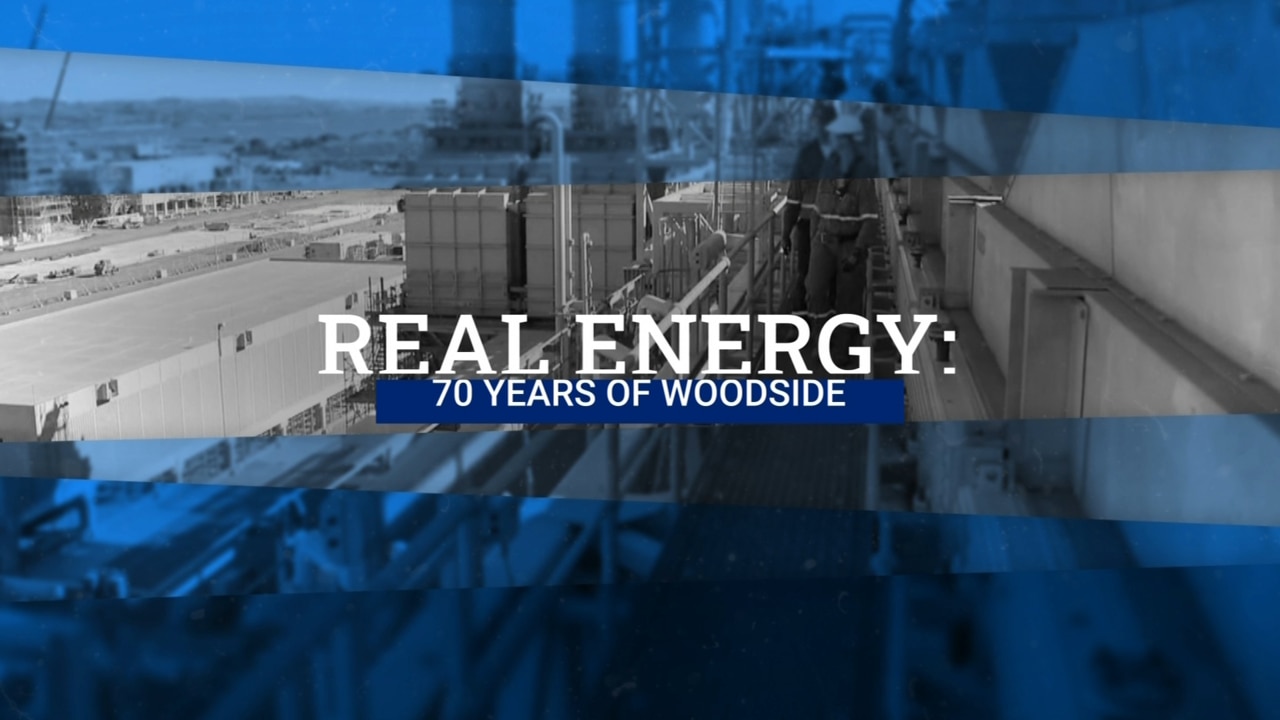Woodside buys US LNG company Tellurian in deal worth $1.8bn
The $1.8bn deal to buy Tellurian catapults the Australian energy company into a global giant, with CEO Meg O’Neill saying it is now positioned to tap world demand for LNG.

Woodside Energy has agreed to buy US LNG company Tellurian in a deal worth $US1.2bn ($1.79bn), catapulting it into being one of the world’s biggest LNG players ahead of a potential Trump administration increasing support for the fossil fuel.
The deal, in which Woodside will acquire all of Tellurian’s stock for $US1 a share, sees the Australian giant take control over a large US export facility, and drastically increases Woodside’s capacity to meet growing global demand.
Tellurian’s Driftwood LNG facility in Louisiana had the capacity to export 27.6 million tonnes a year, almost three times Woodside’s output from its Australian projects, analysts said.
Former US president Donald Trump has promised to oversee a massive drilling campaign to unlock economic growth and secure energy independence should he re-enter the White House, and Woodside could source supplies through its trading desk or partner with a traditional upstream developer to construct the facility.
Woodside chief executive Meg O’Neill said the deal would position the company to tap global demand for LNG.
“The acquisition strongly fits with our strategy to thrive through the energy transition. It strengthens our portfolio, giving us an enviable mix of Pacific and Atlantic LNG exposure with scalability,” Ms O’Neill said.
However, the deal is a break from Woodside’s typical target. Tellurian is primarily a midstream LNG play through its proposed Driftwood LNG processing facility, which has secured all its required approvals needed for construction to begin on the export terminal. Woodside typically likes to control the entire LNG supply chain, and so the deal for Tellurian will require the Australian giant to source the gas to process it and then export it.
Ms O’Neill said Woodside had the capacity to source gas, while the company could also partner with gas developers that do not have the export infrastructure.
While Woodside sees the deal as attractive, it is also opportunistic. Tellurian has spent years and hundreds of millions of dollars trying to finance and build the Driftwood LNG plant, but it warned last year that it might not be able to cover operating and debt costs due to continued losses and dwindling cash reserves.
Woodside said it had agreed to provide Tellurian with a loan of up to $US230m to ensure Driftwood LNG continued ongoing “momentum” prior to the completion of the transaction.

MST Marquee energy analyst Saul Kavonic said Tellurian had already invested about $1bn in the venture, making the deal a de facto bargain.
“This deal is about Woodside positioning as the global LNG player, to be one of the largest and purest LNG exposures in the market,” Mr Kavonic said.
“Other major LNG producers also hold a swath of oil, downstream and other assets that dilute the LNG exposure.”
Woodside highlighted the substantial capacity and geographical reach that the Driftwood plant could service. Woodside said it was targeting a final investment decision on whether to proceed with the construction – which appears almost certain – in the first quarter of 2025.
Woodside said should it approve the construction, the facility could be operational just before the end of the decade. It described the design of the project as “cost and carbon competitive”, with development costs of between $US900 and $US960 per tonne of capacity.
Ms O’Neill said Woodside could elect to sell down its holding in Driftwood, and had received “numerous” inquiries from prospective partners. She declined to reveal the parties’ identities.
Saudi Aramco, a global energy titan, was believed to be interested in investing in Tellurian prior to Woodside closing the deal.
The market was lukewarm on Woodside’s purchase, with shares falling more than 2 per cent.
Dale Koenders, head of energy at Jarden, said the market was concerned about the wait times for the deal’s pay-off.
“We think some will be concerned that Woodside is buying long-dated growth options when investors want returns. This acquisition extends the duration of peak capex, removes the option to pay further dividends, and delays degearing to now beyond 2026,” Mr Koenders said.
The deal also delivers on Woodside’s pledge to acquire growth opportunities while remaining disciplined on value. Woodside last year explored a deal to acquire fellow Australian company Santos, but walked away when it perceived the price would be too high.
Woodside hopes to aggressively move to capture expected global growth in demand for fossil fuels, particularly for LNG as countries wean from coal to meet net zero emissions goals. The West Australian company has several critical growth projects reaching or approaching production.
The group last month said it had achieved first oil from the Sangomar field offshore from Senegal.
Last year, Woodside said it had decided to proceed with the $US7.2bn deep water oil project in the Gulf of Mexico that it expects to begin production in 2028.




To join the conversation, please log in. Don't have an account? Register
Join the conversation, you are commenting as Logout